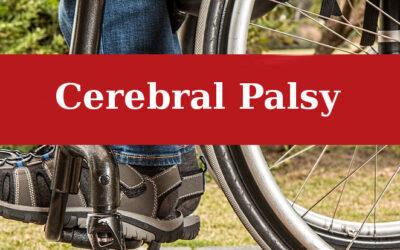Understanding Cerebral palsy wheelchairs
Welcome to Trishla Foundation, a beacon of hope and support for individuals and families navigating the journey with cerebral palsy. Our commitment extends beyond medical treatment to embracing every aspect of cerebral palsy living style, with a significant focus on mobility. Mobility aids, including wheelchairs and adjusted scooters, are pivotal in enhancing the quality of life for those with cerebral palsy, offering independence and the freedom to explore the world around them.
Understanding the Needs
Cerebral palsy affects individuals in various ways, making personalized mobility solutions crucial. Our approach begins with a comprehensive assessment to understand each person’s unique needs. Whether it’s a child experiencing the world for the first time or an adult seeking enhanced mobility, we believe in providing the proper support that aligns with their physical abilities and lifestyle.
Cerebral palsy wheelchairs
Cerebral palsy wheelchairs are designed to cater to the diverse needs of our community. From pediatric to adult sizes, each wheelchair is selected carefully, ensuring it offers the necessary support, comfort, and adaptability.
Pediatric Wheelchairs
Specifically designed for children, these wheelchairs are adjustable to accommodate growth and changes in mobility needs. Features include tilt-in-space, recline functions, and customizable head, trunk, and limb support.
Manual Wheelchairs
Manual wheelchairs offer independence and ease of use for individuals with good upper body strength. Options include lightweight frames for easy transportation and sports wheelchairs for the athletically inclined.
Powered Wheelchairs
For those requiring additional support, especially with weak upper bodies, powered wheelchairs offer freedom of movement with the touch of a button. Our selection includes models with customizable controls suited to various levels of motor ability.
Scooters for Enhanced Mobility
Mobility scooters are an excellent option for individuals with cerebral palsy who can manage seated stability but require assistance for longer distances. Scooters balance independence and support, allowing users to easily engage in community, outdoor activities, and everyday errands.
Adaptive Features
Scooters have adjustable armrests, swivel seats for easy access, and variable speed controls to accommodate different environments and user preferences.
Portability and Convenience
We understand the importance of convenience. Our range includes models that are easy to disassemble for transport, ensuring that users can take their mobility aids wherever they go.
Guide to Navigating Mobility Aids
At Trishla Foundation, we understand the critical role of wheelchairs and scooters in enhancing the lives of those with cerebral palsy. While we do not sell wheelchairs or scooters, our mission includes guiding you through the maze of options, ensuring you make informed decisions that best suit your needs.
Enhancing Participation in Daily Activities
Wheelchairs and scooters enable individuals with cerebral palsy to partake in daily activities, social events, and educational opportunities. They offer the freedom to navigate different environments, from schools and workplaces to parks and community centers, fostering inclusion and reducing barriers to participation.
Promoting Physical Health and Wellbeing
Properly fitted wheelchairs and scooters enhance mobility and contribute to the user’s physical health by supporting proper posture, reducing the risk of pressure sores, and enabling physical fitness. These benefits are crucial for maintaining health and preventing secondary conditions associated with limited mobility.
Boosting Psychological and Emotional Wellbeing
Independence and the ability to interact with peers play a significant role in the psychological and emotional well-being of individuals with cerebral palsy. Wheelchairs and scooters can boost self-esteem, promote a sense of autonomy, and enhance quality of life, contributing to overall happiness and satisfaction.
Customization and Technology Integration
The evolution of mobility aids has led to advancements in customization and technology. Wheelchairs and scooters can now be equipped with various adaptive technologies, including joystick controls, voice-user interface, and customizable seating for optimal comfort and functionality. These innovations ensure that individuals can find mobility solutions tailored to their needs and abilities.
Training and Adaptation
Acquiring a new mobility aid is the beginning of a journey. Users and their caregivers may require training to adapt to their new equipment fully. Trishla Foundation supports this transition through educational resources, hands-on training sessions, and ongoing support to ensure users can maximize the benefits of their mobility aids.
Selecting the Right Mobility Aid
Selecting suitable wheelchairs and scooters for an individual with cerebral palsy is a multifaceted process that requires careful consideration of the user’s unique needs and lifestyle. Here’s a detailed exploration of the critical reviews mentioned, which can help guide the selection process more effectively:
Physical Support and Comfort
Wheelchairs and scooters must provide adequate physical support to the user, ensuring both comfort and proper posture, which are critical for long-term health and well-being.
Adjustable Support Features
Look for wheelchairs and scooters with features that can be adjusted to fit the user’s body precisely. This includes adjustable headrests for neck support, lateral supports to stabilize the torso, and customizable cushioning to prevent pressure sores and enhance comfort. The ability to adjust these features is crucial for accommodating specific physical needs and ensuring the mobility aid remains comfortable and supportive as those needs evolve.
Ergonomic Design
Wheelchairs and scooters should have ergonomic designs that support the body’s natural curves. If the user is seated inappropriately for extended periods, this can help reduce the risk of secondary conditions, such as scoliosis or hip dislocations.
Lifestyle Compatibility
The daily activities and environments the user engages with play a significant role in determining the most suitable type of mobility aid.
Lightweight and Portable Options
For individuals leading active, on-the-go lifestyles, lightweight wheelchairs or scooters that are easy to fold and transport in a vehicle can be ideal. These options facilitate social outings, traveling, and participation in various activities without the mobility aid becoming a hindrance.
Sturdier Models for Outdoor Use
Those who spend significant time outdoors or navigating rough terrains may benefit from sturdier models designed for enhanced durability and stability. Features like larger wheels, reinforced frames, and suspension systems can provide a smoother ride on uneven surfaces.
Growth Adaptability
Growth adaptability is critical to ensuring that wheelchairs and scooters can accommodate changes over time, especially for children with cerebral palsy.
Adjustable Size and Components
Choosing wheelchairs that can be adjusted in size—not just in seat width and depth but also in backrest height and armrest height—is essential. This adaptability ensures the wheelchair can grow with the child, preventing the need for frequent replacements and ensuring ongoing support and comfort.
Modular Designs
Some wheelchairs offer modular designs, allowing components to be replaced or upgraded as the child grows or their needs change. This flexibility can be cost-effective and supportive of the child’s development.
Ease of Use
The usability of a mobility aid is paramount, affecting not just the user but also caregivers who may need to operate or transport the device.
Maneuverability
Evaluate how easily the wheelchair or scooter can navigate tight spaces, turn corners, and move over different surfaces. A mobility aid that is difficult to maneuver can limit independence and access to various environments.
Transportation and Storage
Consider how easily the wheelchairs can be folded, disassembled, or adjusted for riding in a vehicle or storage in the home. Mobility aids that are cumbersome to transport or store may be less likely to be used to their full potential.
Controls Simplicity
For powered wheelchairs and scooters, the simplicity and intuitiveness of the controls are crucial. Users should be able to understand and operate the controls efficiently, and features such as programmable settings can allow for customization of the user’s preferences and abilities. By carefully considering these aspects—physical support and comfort, lifestyle compatibility, growth adaptability, and ease of use—families and caregivers can select a mobility aid that not only meets the user’s immediate needs but also supports their independence and quality of life in the long term.




